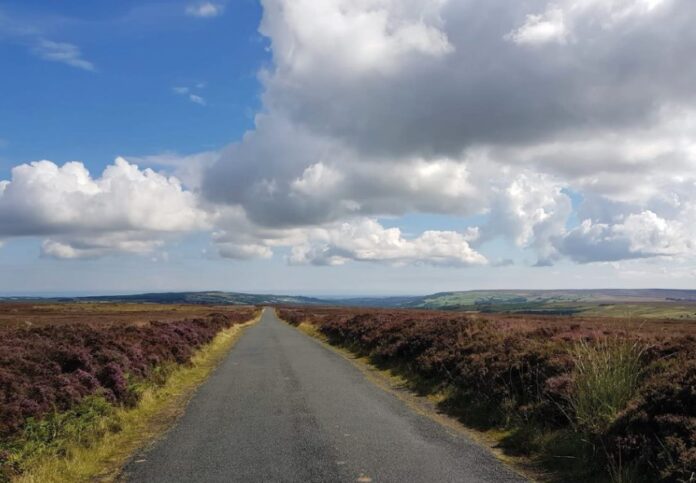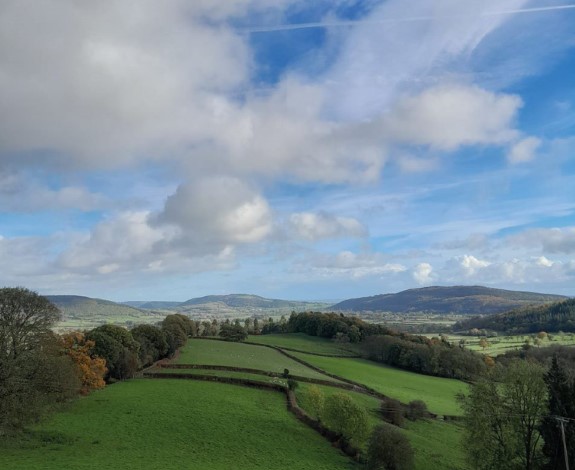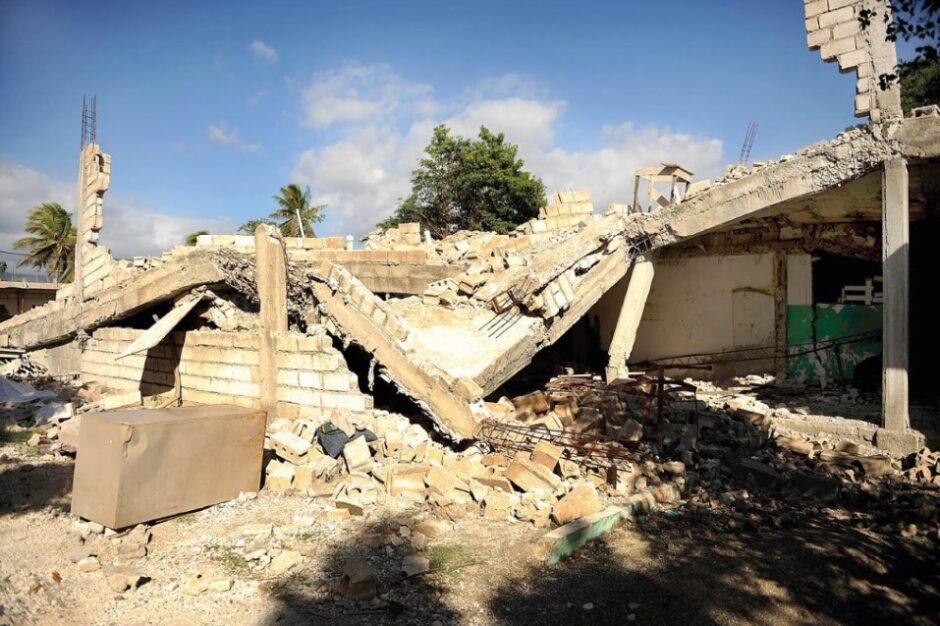As a young man, late one night I was driving down a country lane. The dim headlights of my old car caught a rabbit—too late for it to move, and a moment later it lay dead in the road. I stopped the car, jumped out and ran back to the spot. There was not a mark on the rabbit. I thought that would taste good in the pot. A few days later we feasted on rabbit stew.
As a young father, I was once again driving along with my two-year old daughter riding in the back. A wood pigeon sat in the middle of the road. It seemed oblivious to the impending danger and too late it decided to try and fly away. There was the tell-tale thump and its feathers flew everywhere. I once again pulled the car over and ran back to the spot where the impact had taken place. There was nothing to be done—just a dreadful mess. I quickly did what I could to clear up and put the remains under a hedge. My stomach turned over. As I climbed back into my seat and drove on a little voice in the back asked over and over, “What happened to the pigeon, Daddy? What happened to the pigeon?”
Trials
Both incidents seemed to highlight the way in which we as humans react to the trials, difficulties and suffering in our lives, and indeed the changes that take place in us as we develop and our personal circumstances change.
Sometimes we relish the challenge difficult situations present. On other occasions we are appalled by things that happen and feel either helpless or guilty.
At times we seem oblivious to the sufferings going on around us, at others it becomes very personal indeed and we are struck dumb with no answers to a difficult situation. The other thing we try to do is search around for some specific reason —ultimately something or someone to blame. Often the inclination is to blame God.
“Why does God allow it to happen? I thought He was supposed to be a loving God!” “Where was God when that happened?” “What has your God got to say about that?”…
Often when people ask such questions they’re not expecting an answer, and they don’t listen if they’re given one.
Isn’t it odd that many people will only think of God when things are going badly? They don’t acknowledge or thank Him for life’s many blessings.
Faith
In order to make sense of life, we need to start with God. We are told, clearly, that ‘without faith it is impossible to please him, for whoever would draw near to God must believe that he exists and that he rewards those who seek him’ (Hebrews 11:6).
This Bible verse marks both the beginning and the end of the answer to all the questions about life that we may have. It tells us that there is a rich reward for those who are
willing to trust God and deliberately and carefully seek to please Him in their lives. The clear implication is that He, and He alone, can give meaning and purpose to our lives. We have to acknowledge that He is the infinite God and that we are finite human beings. He understands and knows everything. We on the other hand are going to have times when we simply don’t know, and certainly times when we don’t understand what is going on in our lives. One thing of which we can be certain, however, is that the Bible is true and its truths are basically simple. Jesus said to his followers:
Fear not, little flock, for it is your Father’s good pleasure to give you the kingdom (Luke 12:32).
Firstly this is challenging. But we do need to stop behaving like frightened rabbits and place our confidence, by faith, in God.
Then there is also the reward. Those words were spoken by the Master, Jesus himself, who probably had the most trying life of all. They mean that by faith our lives need not be limited to a few decades, but they are placed in an eternal context. Here it seems to me that the Bible really does speak for itself. It contains many glorious descriptions of the Kingdom which will be established when Christ returns. It will be a world that’s very different from the one we know now. For example, find for yourself Isaiah 35 and let your mind dwell upon it.
Jesus is Coming Back!
• He will return at a time when the whole world seems burnt out and burnt up—on the brink of total ruin (Luke 21:26–27).
• He will stop a war in Israel and establish a reign of peace in Jerusalem (Zechariah 14).
• He will bring the dead to life again and there will be a judgement (Daniel 12:2–3).
• He will give everlasting life to those who have diligently sought to please God in their lives (Matthew 25:21).
• Then pain and suffering will surely be removed from the earth (Isaiah 35:5–6).
• The earth will be restored to paradise (Psalm 72:16).
What a vision for us! God has given us hope. If we take a realistic view, there is precious little hope in today’s world. People look hopefully to their leaders to effect change for the better—and are usually quickly disillusioned.
What is Wrong
There is a fundamental problem with human nature. That’s why Jesus came the first time—to open the way of salvation from the problem within each one of us: the Bible calls it sin. Jesus ‘gave himself for our sins, that he might deliver us from this present evil
world, according to the will of God and our Father’ (Galatians 1:4). Having prepared a people, his second coming will be to establish the Kingdom: ‘Christ, having been offered once to bear the sins of many, will appear a second time, not to deal with sin but to save those who are eagerly waiting for him’ (Hebrews 9:28).
So why are there disappointments, frustrations, pain and sadness in our lives? Surely it is to teach us there is something wrong that needs putting right. Because of God, the God of love—we know it can be put right, His way and in His good time. In the meantime we have to learn patience, endurance and trust in Him. He has a plan and it is still on track.
Why are there earthquakes and other natural disasters? They teach us that the whole of creation is caught up in the wilfulness of mankind and is affected by our sin—either indirectly as a result of the curse in Eden (Genesis 3:17–18), or directly because of the way we are despoiling, polluting and abusing it. All creation is suffering with us, and awaiting its own salvation in God’s Kingdom:
For the creation waits with eager longing for the revealing of the sons of God. For the creation was subjected to futility, not willingly, but because of him who subjected it, in hope that the creation itself will be set free from its bondage to corruption and obtain the freedom of the glory of the children of God (Romans 8: 19–21).
What should be our reaction when we’re faced with natural disasters? This was Jesus’ response when he was told of people who had lost their lives in a disaster: ‘Unless you repent, you will all likewise perish’ (Luke 13:5).
The Right Response
Climate change may indeed be the result of our own greed and folly, but it is in God’s hands! Of course we should treat this world with respect and care, but first and foremost should be a reappraisal of where we are and what we are doing in our own lives. Let’s start with the need for repentance—being genuinely sorry about the world situation and also our own flaws.
Repentance really means an about-turn in our personal way of life. In practical terms it means being realistic about ourselves and the world in which we live, and awakening to the fact that God has graciously allowed us to choose whether we acknowledge Him or not.
Acknowledging that both in our individual lives and in the wider world there is something fundamentally wrong; we live in a world of death. It is a world that has natural disasters, climate change, poor commercial systems, unjust governments, international conflict, inter-personal strife —but ultimately all these are in God’s hands and will be overruled by Him.
So face the reality that you, as a human being, need help. Pray, ask God to help you sort out the difficulties whatever they are, in your own life and in the world around you. Seek out, through His Word the Bible, what He wants you to do. Belief and repentance lead to baptism, a symbolic washing away of sins and the start of a new life with God (Romans 6:4). Seek in your life a closer relationship with Him, which will lead ultimately to the great reward He has promised when Jesus comes again.
The first thing I urge you to do is pray—however imperfectly you may feel you do it. Praying is not a matter of flowery words from a prayer book. The important thing is that you mean what you say and say what you mean. Nor is it a matter of a special place or time. Do it whilst what you wish to pray about is in your heart and mind, with no preconditions, no barriers. You can then go on your way looking for the answer, because you believe that Someone, God, has been listening and has the power to help.
Often answers are to be found in the Bible, the Word of God, itself.
Remember that building a relationship with God is about faith. It is largely experimental, about life, about doing it, starting with reading the Bible as a regular part of your daily activity and allowing it to lead you. In other words give God an opportunity to be heard—by you. You have my personal assurance that it has worked in my life. If things don’t seem to be working out it’s usually because I have forgotten to seek God’s guidance or because of my impatience—certainly not because He has failed.
One dusky, dusty evening I was driving along an African road, probably going too fast, when in the headlights I caught sight of a huge ditch stretching right across my path. Of course I tried to brake, but on the dirt track the car entered a prolonged skid. At the last second it slewed around and came to rest with its nearside wheels on the very brim of the ditch. We cautiously climbed out, all of us through the offside doors! All I could say was,
“God must have had us in His hands. Thanks be to Him and Him alone!”
We cautiously drove on our way—thoughtfully thankful and with a little more caution.
David Nightingale





